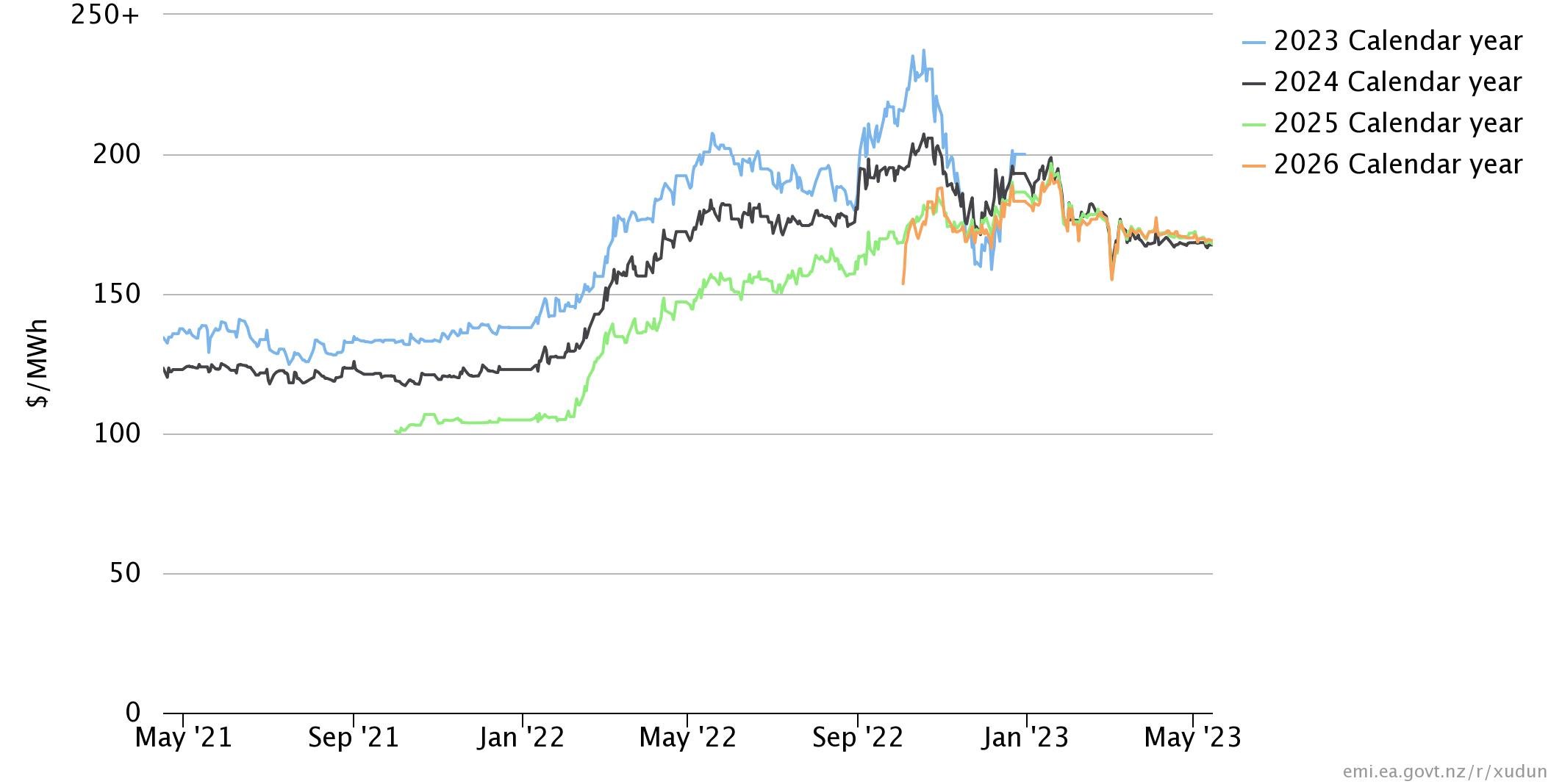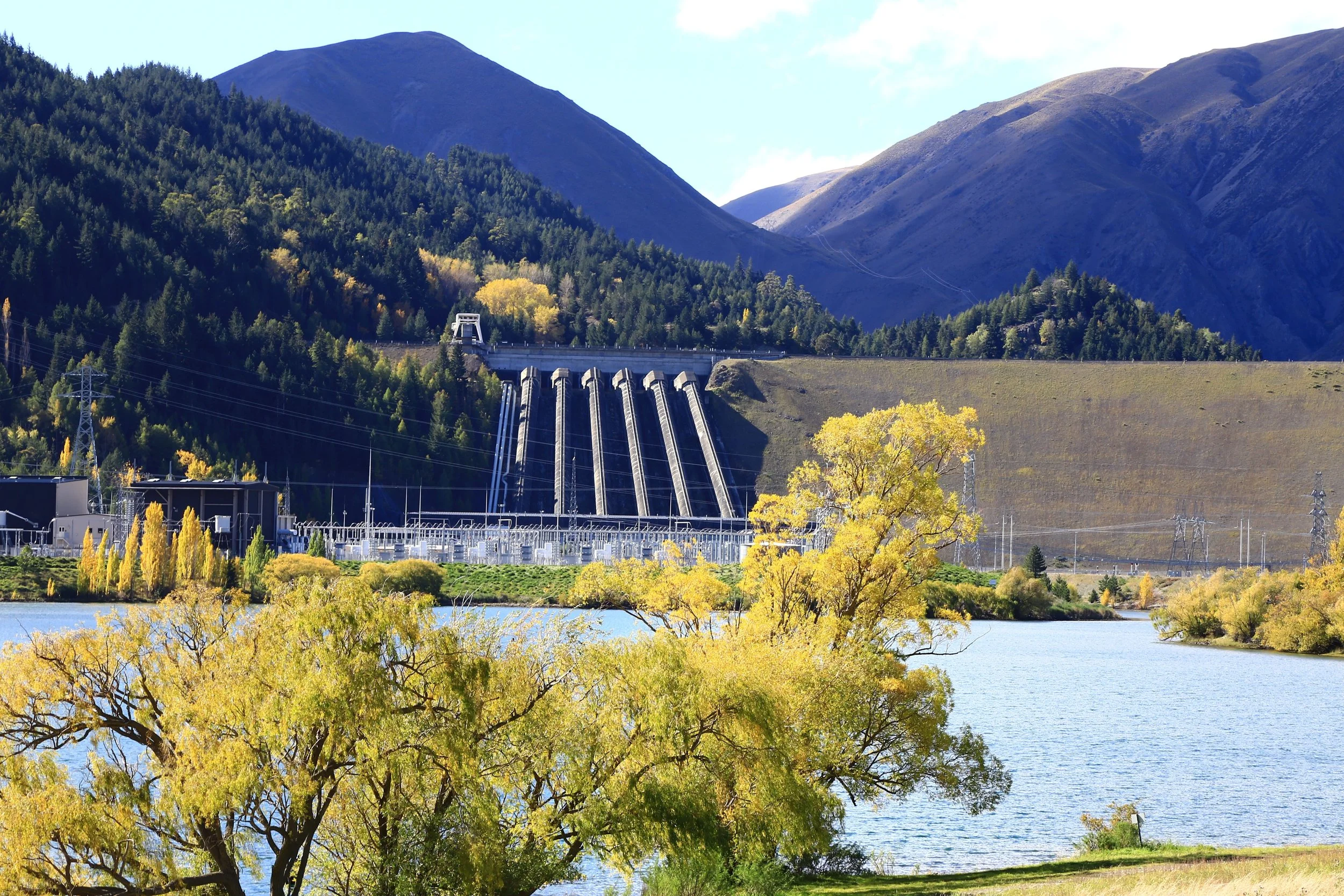Transmission Pricing Methodology (TPM)
Welcome to our latest edition of Between the Lines, Tenco's publication, highlighting our capability, people, and ideas. This edition touches on the new Transmission Pricing Methodology (TPM) that commenced on 1 April 2023. We also provide an update on the electricity supply market and highlight the influence of hydro lake levels on short-dated future prices. We also discuss the importance of holding accurate site contact details within our records and provide an overview of Tenco's expanding service offering.
Transmission Pricing Methodology (TPM)
In 2022, the Electricity Authority adopted a new Transmission Pricing Methodology (TPM) following an extensive and multiyear consultation process that involved crucial input from key stakeholders, industry participants, the Commerce Commission and Transpower, who owns and operates the national transmission grid.
Background
The Commerce Commission regulates network pricing per the Commerce Act because you cannot select between network providers, given the prohibitive cost of building and maintaining electricity distribution networks. The Commission determines price targets based on its view of what is in the best long-term interest of electricity consumers within a region.
Transpower's charges are included in local network company rates, passed on to electricity retailers, and subsequently to end customers. The total amount of transmission charges Transpower collects remains the same, but how these charges are distributed among customers has changed. The new TPM aims to ensure that transmission pricing is fit for purpose in the transition to a low-emissions economy and that the grid is paid for by those who are expected to benefit from investment in it. The new TPM will encourage more efficient use of the grid and more efficient investment in transmission and generation assets and aims to:
Reduce the cost of electricity at peak times when New Zealanders want to use it most.
Ensure that those set to benefit from areas of grid investment will pay for it.
Lead to lower prices in the long term for delivered electricity
What Does This Mean For Me?
Some transmission customers will see an increase in their costs, and others will see a decrease. It is up to local lines companies around New Zealand to decide how they pass on the charges to their customers (primarily electricity retailers), who then choose how to reflect them in electricity bills. As a result, the exact impact on consumers will vary depending on where in the country they are, the connection size, and their usage pattern.
New Zealand Electricity - Market Update
The New Zealand electricity market is overseen and regulated by the New Zealand Electricity Authority and is owned and operated by Transpower. The electricity futures market allows electricity buyers to purchase a forward contract. This contract protects buyers against volatile spot prices by fixing their electricity prices for a specified period. Forward prices reflect expectations of future electricity demand and generation costs. Market buyers and sellers determine these prices and represent the consensus view of future prices. The electricity futures market indicates where market participants see the spot market moving in the future, providing a valuable proxy for the direction of retail contracts.
Current Market Commentary
The chart below illustrates the Forward Price Curves as of 15 May 2023 at the Otahuhu node in Auckland for the calendar year 2023 through to the calendar year 2026. These prices are quoted in megawatt-hour (MWh) and must be divided by ten to attain the equivalent kilowatt-hour (kWh) price.
Forward prices have decreased in the six months to 15 May 2023, with the calendar year 2024 price decreasing by 7.2% from 16 November 2022 to 15 May 2023. While the calendar year 2025 and 2026 prices have fallen slightly by 2.4% and 2.3% for the same periods, respectively.
If you have any energy supply agreements expiring in the next six months, you must consider your contract renewals now. Tenco operates an in-house tender desk and is well-versed in sourcing electricity and gas contracts for your business. Our Tender Desk manager Brendon Blacklaws can look at your business's energy requirements and is here to provide independent, tailored advice on your contract.
Hydro Lakes
Hydro dams primarily generate New Zealand's electricity, mainly in the South Island. Storage reservoirs are common at dams to store water for later use. The amount of water stored in each hydro lake is determined by the difference between inflows - rain or snowmelt - and outflows - electricity generated. Hydro storage decreases if a hydro dam consumes more water from a reservoir than is refilled by inflows. While New Zealand's hydro lakes are large enough to be seen from space, their reservoir capacity is limited - since minimum lake levels must be met.
Hydro reservoirs can store enough energy for approximately five weeks of electricity generation during the winter when they are full. Hydro storage management is essential to the electricity industry. Current and projected market conditions impact forward electricity prices, with hydro storage tending to heavily influence short-dated future prices, making them potentially more volatile than future long-dated prices. High hydro storage depresses spot prices as abundant hydroelectricity can be offered cheaply. So, the cost of short-dated forward prices tends to fall as hydro storage increases.
Site Contact for Planned Embedded Network Outage Notifications
Occasionally, the local network company that supplies your property will schedule outages for maintenance and repairs. Tenco will inform you of this planned outage in advance when we receive notification from the local network company so you can tell your tenants. Tenants within your property will not receive a separate notice of scheduled outages. Therefore, you will need to share this information with them.
Please contact us by clicking the button below quoting your Account Number, which can be found on the top right-hand corner of your monthly Embedded Network invoice, to confirm who we currently have on record as your preferred Site Contact to receive advice about planned outages.
Summary of Tenco Services...
Tenco is the largest private utility network provider in New Zealand – serving over 200 clients across 350+ networks -- with specialist expertise built up over two decades. We have invested in best-in-class technology and people, so you do not have to do so.
Tenco provides its clients with an in-house ICP management service and is a registered electricity retailer. By managing gateway services under our retailer registration, we set ourselves apart by eliminating the risk of a third-party opting not to provide these services -- or increasing the cost of doing so. Tenco took this approach to mitigate any risk that would otherwise fall back on our clients.
Our Tenco Insights platform is available to all our embedded network clients (at no cost) for asset management and sustainability reporting purposes. Various performance metrics can be analysed to support green building compliance and asset optimisation.
Additionally, Tenco offers water, gas, and fibre broadband billing solutions and an in-house tender desk adept at sourcing competitive electricity and gas supply contracts. We are well-positioned to provide a wide range of utility-related services designed to increase the value of your asset.
Gordon Napier, Head of Client Services
027 605 4585
gordon.napier@tenco-ebs.co.nz






